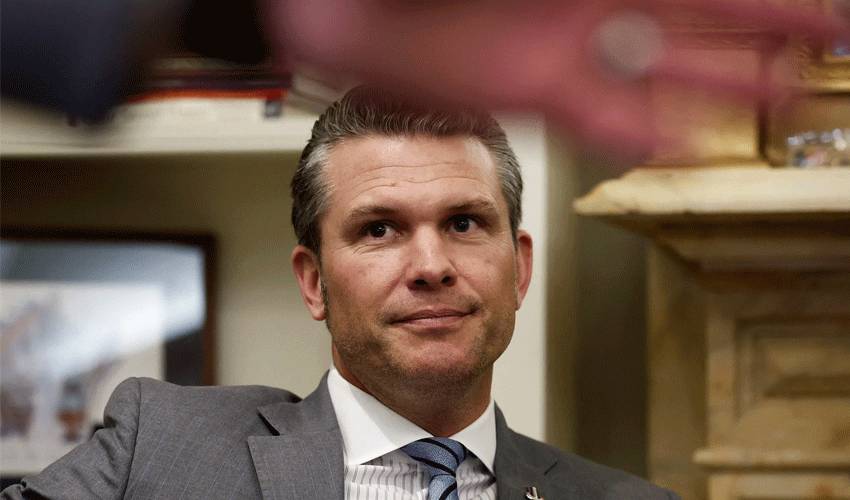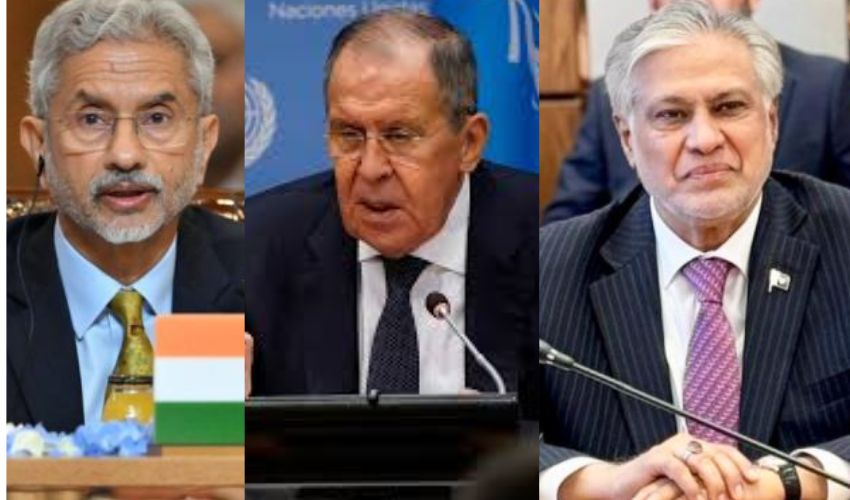United States Secretary of Defense Pete Hegseth is facing intense scrutiny after it emerged that he shared classified details of airstrikes on Yemen’s Houthi rebels with members of his family and personal associates via an unclassified Signal messaging group, according to multiple reports by Reuters and The New York Times.
The latest revelation marks the second known incident of Hegseth using a private chat group to disclose sensitive military plans. A person familiar with the matter, speaking to Reuters on condition of anonymity, confirmed that the Signal chat included Hegseth’s wife, brother, and personal lawyer, among others.
The chat reportedly contained detailed information about the March strikes targeting Iran-backed Houthis in Yemen, including the specific schedule and flight timings of combat aircraft.
While the group was initially created during Hegseth’s confirmation process to address administrative issues, sources say it gradually became a platform where sensitive military details were informally discussed.
Images released by the Pentagon earlier this year show Hegseth’s wife, Jennifer — a former Fox News producer — present during closed-door meetings with foreign military officials. During a March meeting with his British counterpart, Jennifer was photographed seated behind the secretary of defense at the Pentagon.
Hegseth’s brother, a liaison from the Department of Homeland Security to the Pentagon, was also reportedly included in the chat.
The incident compounds what has become an increasingly tumultuous period for the Pentagon. Just days earlier, Dan Caldwell, one of Hegseth’s closest aides, was escorted from Pentagon premises after being identified as a central figure in an internal leak investigation. Caldwell had also been named as Hegseth’s point person in a previous Signal chat incident that mistakenly included a journalist.
Two other officials — Darin Selnick, Hegseth’s deputy chief of staff, and Colin Carroll, chief of staff to Deputy Defense Secretary Steve Feinberg — were placed on administrative leave and subsequently terminated on Friday.
The first leak, widely reported by The Atlantic, involved a separate Signal chat mistakenly including editor-in-chief Jeffrey Goldberg. That incident revealed pre-strike details shared among several senior Trump administration officials, including National Security Adviser Mike Waltz, CIA Director Tulsi Gabbard, and Middle East envoy Steve Witkoff.
In response to growing criticism, Pentagon spokesperson Sean Parnell alleged, without evidence, that media outlets were relying on “disgruntled former employees” and accused the press of orchestrating a campaign to undermine President Trump’s national security team.
“The Trump-hating media continues to be obsessed with destroying anyone committed to President Trump's agenda,” Parnell said in a statement posted on X. “We’ve already achieved so much for the American warfighter, and will never back down.”
The White House issued a similar response, with spokesperson Anna Kelly claiming that “recently fired ‘leakers’ are continuing to misrepresent the truth to soothe their shattered egos.”
Nonetheless, the developments have drawn fierce condemnation from Democratic lawmakers.
Senate Minority Leader Chuck Schumer posted on X: “We keep learning how Pete Hegseth put lives at risk. But Trump is still too weak to fire him. Pete Hegseth must be fired.”
Senator Tammy Duckworth, a decorated Iraq War veteran, echoed the call for accountability, saying Hegseth “must resign in disgrace.”
A current Pentagon official, speaking anonymously, questioned how the defense secretary could remain in his position following the latest allegations.
“This is not a matter of politics — it’s about national security and trust,” the official said.
The Trump administration, which has been vocally opposed to internal leaks, now finds itself navigating the political and security fallout from within its own highest ranks.
As of now, President Trump has stood by his defense chief, reportedly rejecting calls from senior White House officials to remove him. According to Politico, Vice President JD Vance and Chief of Staff Susie Wiles were among those urging the President to act, but Trump declined, fearing the move would be perceived as a win for the press.



























